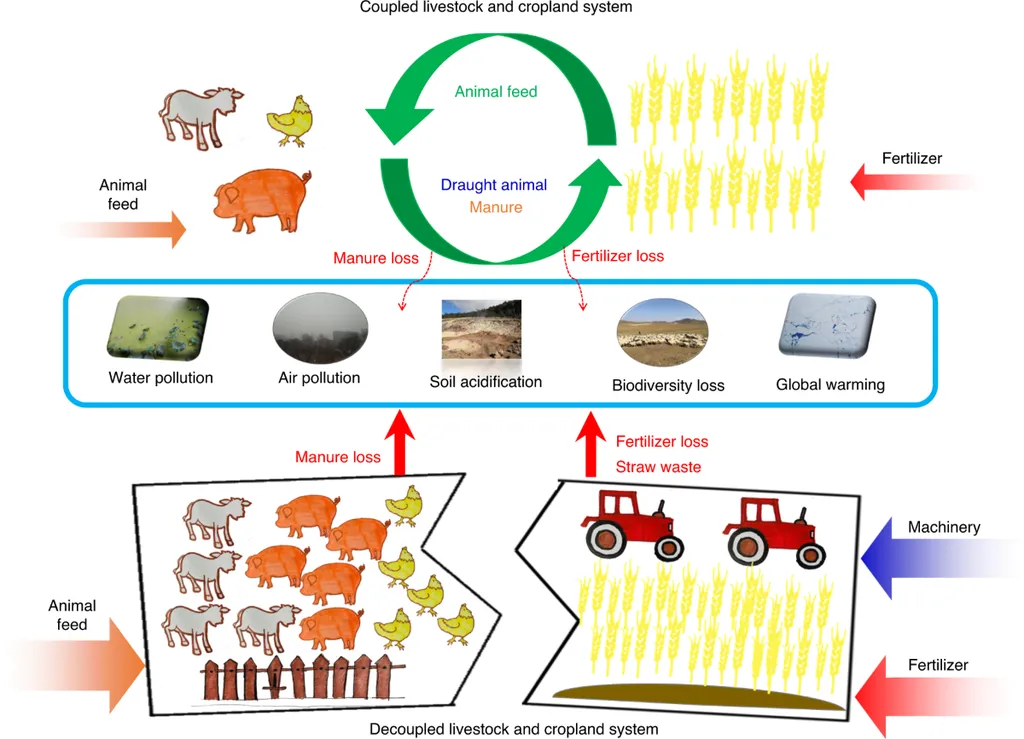In the quest for sustainable agriculture, a new study published in *Communications Earth & Environment* has shed light on the intricate dynamics of crop-livestock systems in China, offering insights that could reshape agricultural practices and policies. The research, led by Mingjin Cheng from the State Key Laboratory of Pollution Control and Resource Reuse at Nanjing University, delves into the spatial decoupling of crop-livestock systems and evaluates strategies to recouple them effectively.
The study highlights a critical issue: the spatial mismatch between manure phosphorus (P) supply and demand. By mapping this balance at an unprecedented 1-km resolution, the researchers revealed that traditional, coarse-resolution studies often underestimate the extent and intensity of crop-livestock decoupling. This mismatch is not just an academic concern; it has significant commercial implications for the agriculture sector.
“Our findings show that high-density manure P surplus areas are more prevalent than previously thought,” Cheng explained. “This has profound implications for farmers and agribusinesses, as it affects everything from fertilizer use to waste management strategies.”
The research employed mathematical programming models to identify the most effective recoupling strategies. Surprisingly, the study found that manure transport is generally more effective at a national scale for mitigating manure P surplus and deficiency compared to moderate livestock redistribution. However, this strategy’s effectiveness varies regionally. In areas with severe manure surplus or large spatial extents, manure transport is less effective.
This nuanced understanding could guide farmers and policymakers in making more informed decisions. For instance, targeted manure transport could optimize nutrient use, reduce environmental pollution, and enhance agricultural productivity. “By recoupling crop-livestock systems more effectively, we can promote circular agriculture, which is essential for a sustainable food supply,” Cheng noted.
The commercial impacts are substantial. Farmers could reduce their reliance on synthetic fertilizers by leveraging manure more efficiently, cutting costs and environmental impact. Agribusinesses could develop innovative solutions for manure transport and nutrient management, creating new market opportunities. Policymakers, armed with this detailed data, could design more effective regulations and incentives to promote sustainable practices.
Looking ahead, this research could shape future developments in precision agriculture and sustainable farming practices. As the agriculture sector grapples with the challenges of feeding a growing population while minimizing environmental impact, studies like this provide a roadmap for more efficient and sustainable practices. The insights gained from this research could be applied globally, offering a blueprint for recoupling crop-livestock systems in other regions and promoting circular agriculture worldwide.

